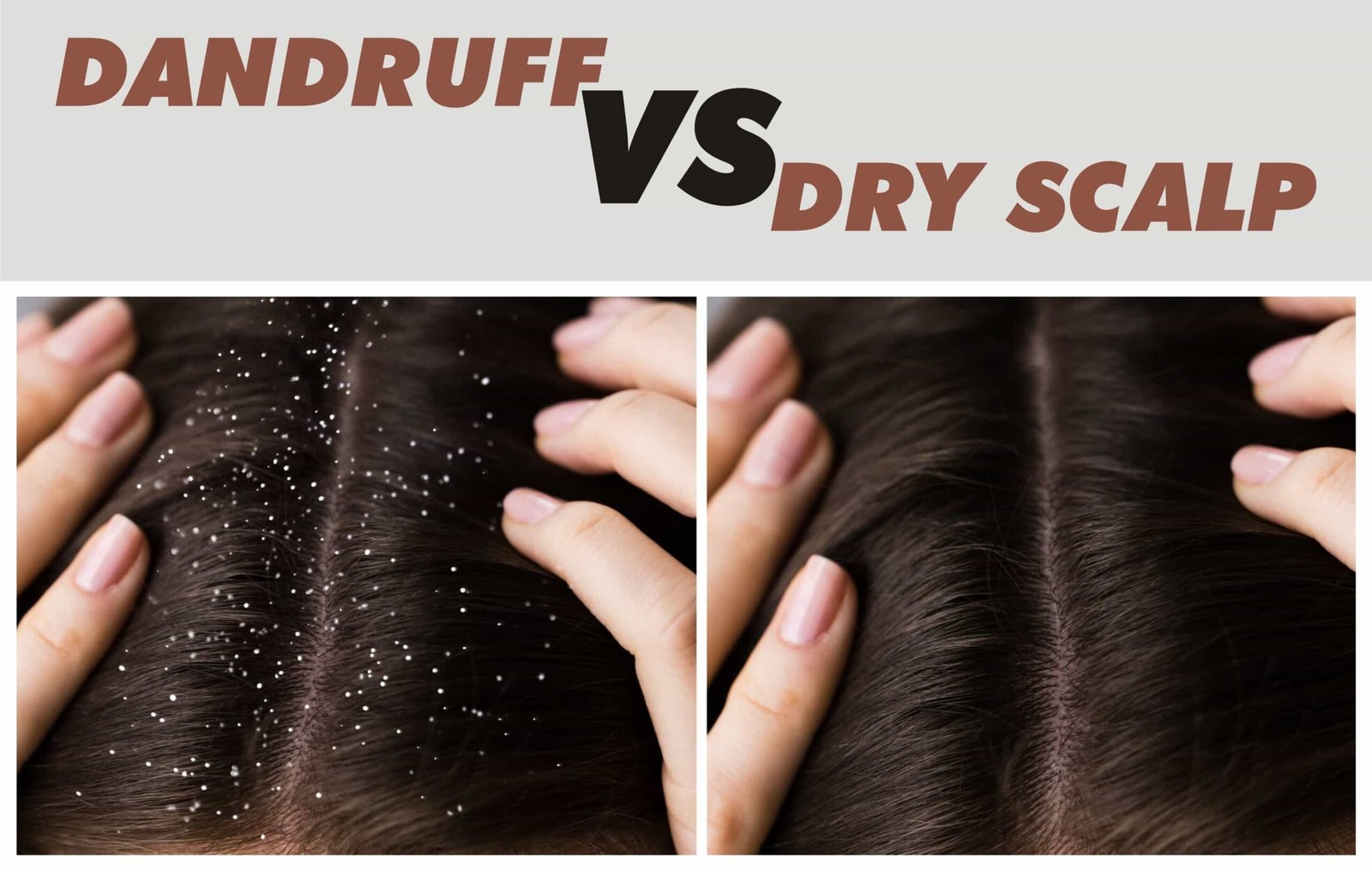
Dandruff and dry scalp are two of the most common conditions of the head scalp. Despite their commonness, there is some confusion between the two, and it is often observed that people use their names interchangeably when there is a clear distinction between the two. The confusion is mainly because the two have mostly the same symptoms, including falling flakes and an itchy scalp.
Yet these two are very different problems with different origins, causes, triggers, symptoms, and treatments. This article is going to discuss the distinctions between the two.
In a dry scalp, the skin often gets irritated and flakes off. With dandruff, the cause is generally excessive oil on the scalp. That excessive oil can cause skin cells to build up and then shed. Thus while one involves a lack of oils, the other has an excess of them.
Several factors can trigger dry scalp, including:
On the other hand, dandruff is caused by age, hormones, stress, etc.
Both dandruff and dry scalp are characterized by symptoms like falling flakes and an itchy scalp. However, in the case of dandruff, the flakes tend to be oily. A dry scalp is also usually accompanied by dry skin on other body parts, whereas dandruff is often seen in people with oily skin. Some other symptoms of these problems are psychological as they tend to reduce confidence levels and may lead to anxiety. Dandruff itself is worsened by stress, thus starting a vicious circle. In very extreme cases, it can even become a cause of depression.
Dandruff is the most prevalent among similar conditions. It affects people post-puberty. Though the exact causes are not well known, it is known to trigger more when one is going through a stressful lifestyle. It is also more common among men than women.
Dandruff and dry scalp have very different treatments, and the treatment for one may not work with the other.
For a dry scalp, the appropriate treatments can be combined with ways to hydrate the scalp. The best methods of treatment, on the other hand, involve reducing the oils in the skin.
One must consult an expert for the dry scalp. In the case of dandruff, the condition is incurable but can be managed by using the right kind of shampoo and maintaining a healthy lifestyle.
Some of the most common home remedies for treating dandruff include the following:
These are only a few of many similar remedies. Most of these can be applied twice or thrice daily.
One can prevent a dry scalp by taking the following measures:
People with dry scalp are also likely to have dry skin elsewhere, and they should get treatments for the dry skin if that is the case.
The following measures can help one prevent or manage dandruff:
The conditions like dandruff and dry scalp are also connected with several frequently asked questions (FAQS). Some of the most important questions are answered here for the reader’s benefit.
Question: Can other conditions cause flaky skin on the scalp?
Answer: The flaky skin on the scalp can also be caused by rarer conditions like eczema and psoriasis, besides dandruff and dry scalp.
Question: How do I know whether I have dandruff or a dry scalp?
Answer: It would help to know whether one has dry or oily skin. Oily skin is likely to have dandruff, whereas dry skin probably means a dry scalp.
The other thing to do is to use anti-dandruff shampoo and see if it helps. If it doesn’t, one should go to a physician and get the condition diagnosed.
Question: How should I choose my anti-dandruff shampoo?
Answer: While choosing an anti-dandruff shampoo, it is best to go for a medicated shampoo-recognized brand. One should check the shampoo ingredients and ensure that the user won’t be allergic to any of them.
Question: Are there any precautions one should take?
Answer: It is important to remember that the above information is general and may not necessarily apply to a specific reader. Thus readers, specifically those with sensitive skins or with pre-existing health conditions or allergies, are advised to consult an expert before changing their shampoos.
Question: Dandruff is only growing worse even though I have tried several shampoos. What should I do?
Answer: In such a condition, one should consult a physician quickly.
Question: Is dandruff a consequence of unclean conditions?
Answer: No. Though it is advised that people with dandruff problems should take showers periodically, the condition is not caused or worsened by a lack of hygiene.
If the reader may have any other queries, they can write to us.
One can quickly wrap up the above discussion by concluding that dandruff and dry scalp are two very distinct conditions. These two hair problems need very different treatments, and one should treat them accordingly. For proper care of one’s hair, it is essential to get both these conditions treated.